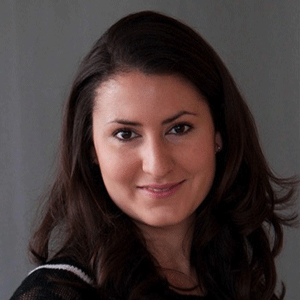 |
|
|
Melanie Donahue |
With a 2016 Physician-Scientist Career Development Award from the American Society of Hematology, third-year School of Medicine student Melanie Donahue will spend a year studying novel proteins with genetic mutations that have been implicated in the development of blood cancers.
“Our findings could have a profound impact on our understanding of novel mechanisms of action of genetic protein complexes called cohesins, but also on the molecular pathogenesis of leukemia,” said Donahue. “Most importantly, it is plausible that these studies will identify new opportunities for therapeutic intervention that target novel transcriptional and/or epigenetic mechanisms in leukemia and other cancers.”
Donahue is one of five medical students nationwide to receive the funding to cover a year of full-time research and living expenses.
“Although I will focus on clinical work as a physician, research is what brought me to medicine and I don’t want to lose that,” said Donahue, who majored in biology, biotechnology and mathematics at Worcester Polytechnic Institute. A summer internship at the UMMS Proteomics Core provided her first immersion in biomedical research. After graduating from college in 2011, Donahue worked as a research assistant at the Broad Institute of MIT and Harvard University before entering the School of Medicine in 2014.
“That’s where I got hooked on medical research, oncology research in particular,” she said. “I started meeting physicians, getting my first in-depth exposure to the career, and learned that academic medicine was what I wanted to do.”
Donahue is returning to the Broad to conduct her research project .She will employ cutting edge techniques, including CRISPR gene editing, RNA sequencing and mass spectrometry with guidance from Broad Institute mentors and American Society of Hematology faculty Benjamin Ebert, MD, PhD, associate professor at Harvard Medical School, and Zuzana Tothova, MD, PhD, a Harvard instructor. Donohue previously collaborated with them on the generation of the stable cohesin knockout CRISPR-Cas9 clonal cell lines and initial Connectivity Map leukemia dataset serving as a foundation for portions of her fellowship project. A prior grant from the hematology society afforded her the opportunity to rejoin Ebert and Tothova in Boston last summer for 10 weeks of highly focused proteomics study in MDS and AML leukemogenesis, and allowed her to gain additional skills and data to apply to her current project.
“I was allowed the immense privilege of interacting with the clinicians and investigators devoted to hematology and oncology on a daily basis, whose expansive knowledge base, intense scientific curiosity and deep patient relationships were a constant inspiration to me,” Donahue said. “They and many others ultimately motivated me to pursue an academic medical career and supported my transition to UMass Medical School.”
Research fellowships like those granted by the American Society of Hematology provide physician-scientists in training with a gap year of sorts, in which they can enhance and expand their medical studies with basic, clinical or translational laboratory research. Donahue will work full-time at the Broad Institute and Brigham & Women’s Hospital from July 2016 through June 2017. She will then return to Worcester to complete her fourth year of medical school and graduate in 2018.
Undecided about which specialty she will pursue in residency, Donahue appreciates that oncology offers multifaceted opportunities to explore her many interests.
“With a background in basic and translational biomedical research, I am deeply drawn to integrating cutting edge science into patient care, drug discovery and population health studies at the front lines in academic medicine,” Donahue said. “In the context of these interests and plans for the future, hematology has emerged over time as an exciting prospective field for me.”